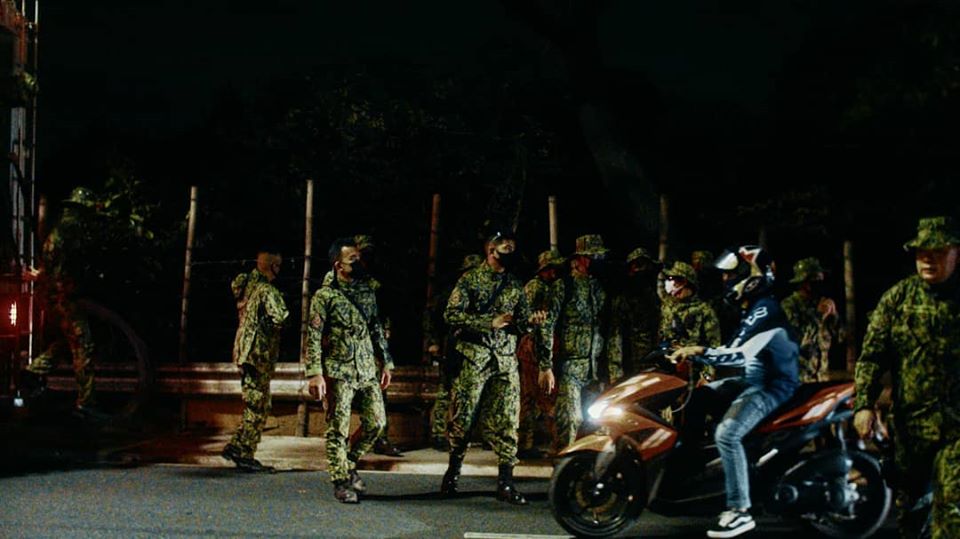With the new policy, there is a higher probability that the police themselves would be spreading the disease.
By ANNE MARXZE D. UMIL
Bulatlat.com
MANILA – Interior Secretary Eduardo Año’s pronouncement that the police will go house to house to search for COVID-19 asymptomatic patients does not sit well with human rights defenders.
Año said on Tuesday that patients who have mild symptoms or asymptomatic should not be on home quarantine if they do not have their own room, own bathroom and if they have house members who are vulnerable to the virus such as pregnant and senior citizens. Such patients would be transferred to government isolation facilities, he said.
The National Union of Peoples’ Lawyers (NUPL) frowned at the idea, saying “arming law enforcers with another tool to sow fear in our communities and trample on our rights–with a draconian Terror Law in the horizon–is worrying and disturbing.”
“How can we be sure that the police will not abuse this new power to intrude into the privacy of our homes and encroach upon our liberties, targeting those who have been vocal with their grievances and criticisms of the government’s callous neglect of the people’s livelihood, health and lives?” the group said in a statement.
Human rights alliance Karapatan said that the house-to-house style of tracking COVID-19 patients could possibly lead to more “tokhang-style” human rights violations such as arbitrary and violent arrests as well as illegal searches, fronts for the surveillance, profiling, and harassment of activists and ordinary folks or worse, killings.
Cristina Palabay, Karapatan secretary general, recalled that the government’s campaign against illegal drugs which also conducted house-to-house only led to thousands of gruesome killings.
She also said that “the past months under lockdown have shown the kind of brazen violence the police could commit even in broad daylight.”
Palabay said these searches would only intimidate patients and their families.
“And what are the police going to do when patients refuse to come with them, shoot them dead and peddle the ‘nanlaban’ narrative? The trigger-happy Philippine police are not trained for the kind of contact tracing needed for this pandemic. Health professionals themselves undergo rigorous training for effective contact tracing efforts, while harnessing cooperation among affected communities and local government authorities is equally needed,” Palabay said.
Not helping with the fight vs COVID-19
Meanwhile, Kabataan Party-list Rep. Sarah Elago said that Año’s directive is not helping in the country’s fight against COVID-19.
Elago said that with the new policy, there is a higher probability that the police themselves would be spreading the disease. As of July 11, there are over 1,000 policemen who tested positive for the virus, 1,252 others are suspected of being infected while another 651 are identified as probable.
“What we need now is to step up efforts to support the local officials and barangay health workers in empowering the people with education and information about community-based management of COVID-19,” Elago said.
“We call on the people to call out invasive policies which threaten to cause an infraction of their rights such as their right to privacy and make a stand in defending them, and amplify the calls for mass testing, security of their jobs and livelihood, socio-economic aid,” she added.
As of July 14, the Department of Health recorded a total of 75,943 COVID-19 positive individuals. Of this number, 57,545 are confirmed COVID-19 cases.
The post Police house-to-house visit in search of COVID-19 patients alarms rights defenders appeared first on Bulatlat.

